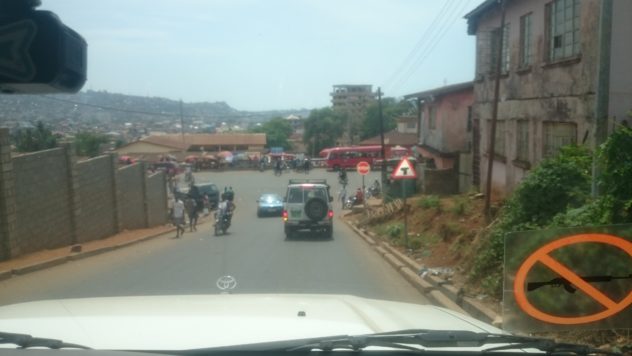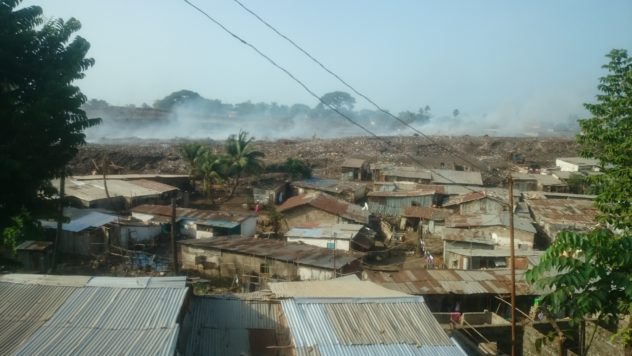It’s lunch time, and we are about to go out from our classroom into the corridor to eat what has been brought up by the catering lady. Jollof Rice and Chicken. But then somebody mentions the Magpie.

It is a warm but cloudy day in the capital. We have been training for two days on the Data collection App Open Data Kit (ODK). Sierra Leone was mapped by motorbike using this downloadable software during the Ebola outbreak, in a (successful) contribution to getting a handle on stopping the disease. Already I have guarded myself against shaking too many hands or having other tactile contact with the people here – those magical cameradic handshakes so memorable from the West Africa of years ago that I remember when, in 1989, I was building a school in the Liberian bush. To ban a handshake here is to ban a native language.
I have already heard from Victor of the way in which people would avoid the ‘Safe and Dignified Burial’ technique desperately encouraged by disaster relief organisations. Distraught and grieving people just wanted to be left alone to tend to the traditional intimate washing of bodies by all the family, but it is this very intimacy which had to be prevented by desperate humanitarian actors. Tales of how families would use their back door to take a body for burial over the porous borderline and into the neighbouring unregulated country are fascinating and initially amusing.
Somebody describes to me the Magpie app., the only way, but a de-personalised way – to keep abreast of the unfolding disaster at the time. Some of the details of what the ‘Enumerator’ was asked to log – safe geo-tagging, photographic data, all flies in the face of talks of ancient intimacy, reducing this kind of anonymous horrific evidence to a DATA BASE entry. It has been so very impersonal, but so critical for the survival of this ravaged but peace-loving communities, and it puts a lump firmly in my throat even now as I try to relay it.

But when you bear in mind that drivers in the capital, as my driver points out, don’t know how to react to the new traffic lights because more than two generations of drivers have passed since the last traffic lights were vandalised in the civil war, another terror which was only just abating properly when Ebola struck, it makes you wonder how any nation could possibly deserve not only these natural disasters, but this assault on their national identity. Sierra Leone has seen brothers slaughter brothers, but until very very recently one was prohibited from even consoling oneself with social traditions of peace, love and intimacy, honoured since before the time of borders, white men, and territory.
One thing as ever remains though, and of course will always remain, which is that people are loving, human, and dignified, throughout and regardless of what has been heaped upon them.